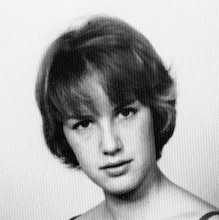A Quote by Tim O'Brien
I did not set out to write another novel. One day I sat down with the thought of trying my hand at a piece of nonfiction, a personal memoir of youth, but over the next several weeks, without intending it, the work began evolving into what has become 'Tomcat in Love.'
Related Quotes
I've been thinking a lot about why it was so important to me to do The Idiot as a novel, and not a memoir. One reason is the great love of novels that I keep droning on about. I've always loved reading novels. I've wanted to write novels since I was little. I started my first novel when I was seven.I don't have the same connection to memoir or nonfiction or essays. Writing nonfiction makes me feel a little bit as if I'm producing a product I don't consume - it's a really alienating feeling.
It's very bad to write a novel by act of will. I can do a book of nonfiction work that way - just sign the contract and do the book because, provided the topic has some meaning for me, I know I can do it. But a novel is different. A novel is more like falling in love. You don't say, 'I'm going to fall in love next Tuesday, I'm going to begin my novel.' The novel has to come to you. It has to feel just like love.
If you always dreamed of writing a novel or a memoir, and you used to love to write, and were pretty good at it, will it break your heart if it turns out you never got around to it? If you wake up one day at eighty, will you feel nonchalant that something always took precedence over a daily commitment to discovering your creative spirit? If not--if this very thought fills you with regret--then what are you waiting for?
Cross out as many adjectives and adverbs as you can. ... It is comprehensible when I write: "The man sat on the grass," because it is clear and does not detain one's attention. On the other hand, it is difficult to figure out and hard on the brain if I write: "The tall, narrow-chested man of medium height and with a red beard sat down on the green grass that had already been trampled down by the pedestrians, sat down silently, looking around timidly and fearfully." The brain can't grasp all that at once, and art must be grasped at once, instantaneously.
If you can propose a memoir, even if you are eighteen years old - and what do you remember? What are you memeing? If you can propose a memoir, I believe someone will pay you to write it. And you will get a contract for nonfiction. And if it is about victimology in one way or another than you'll get more money. It's a sensation.






































